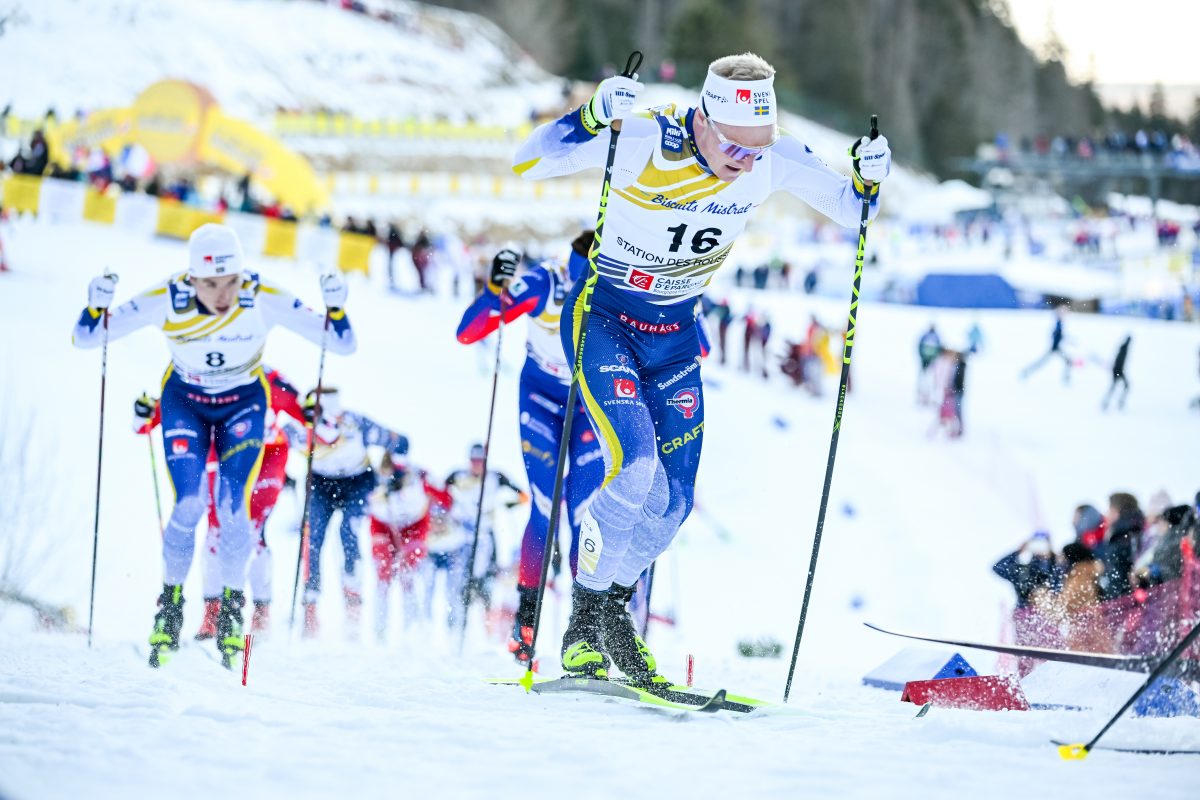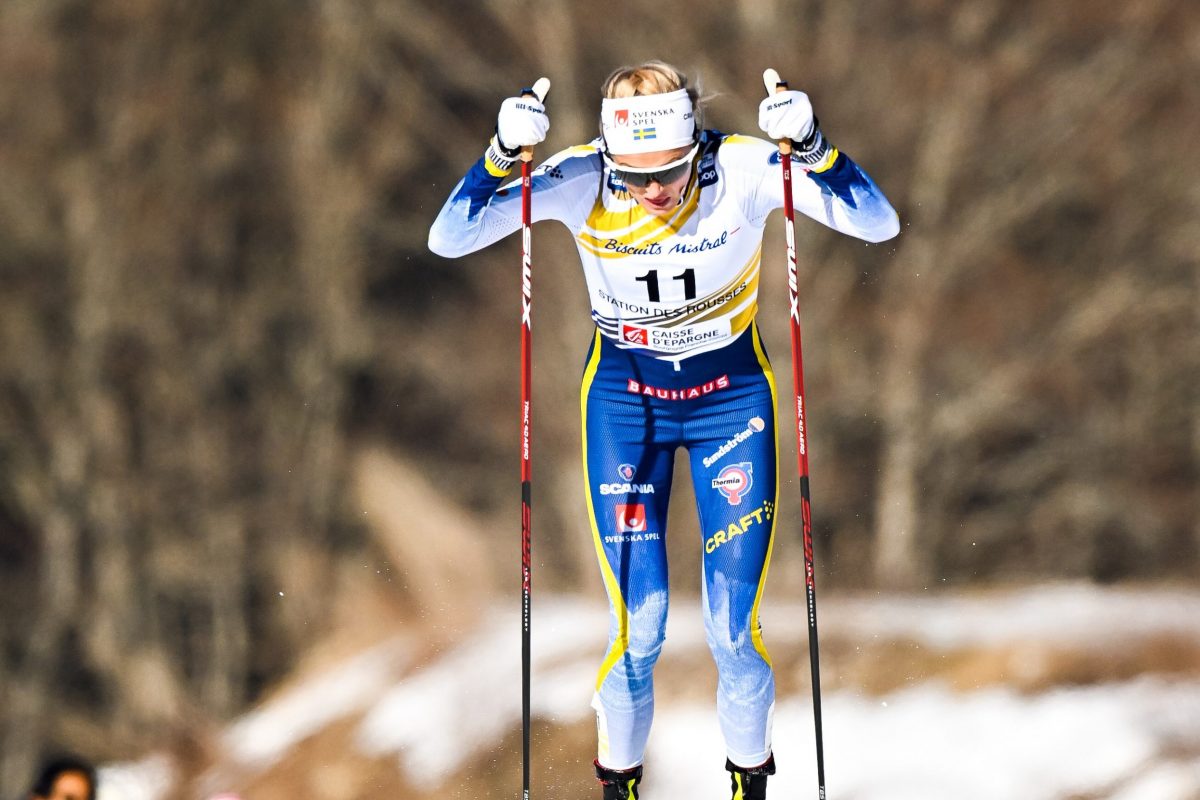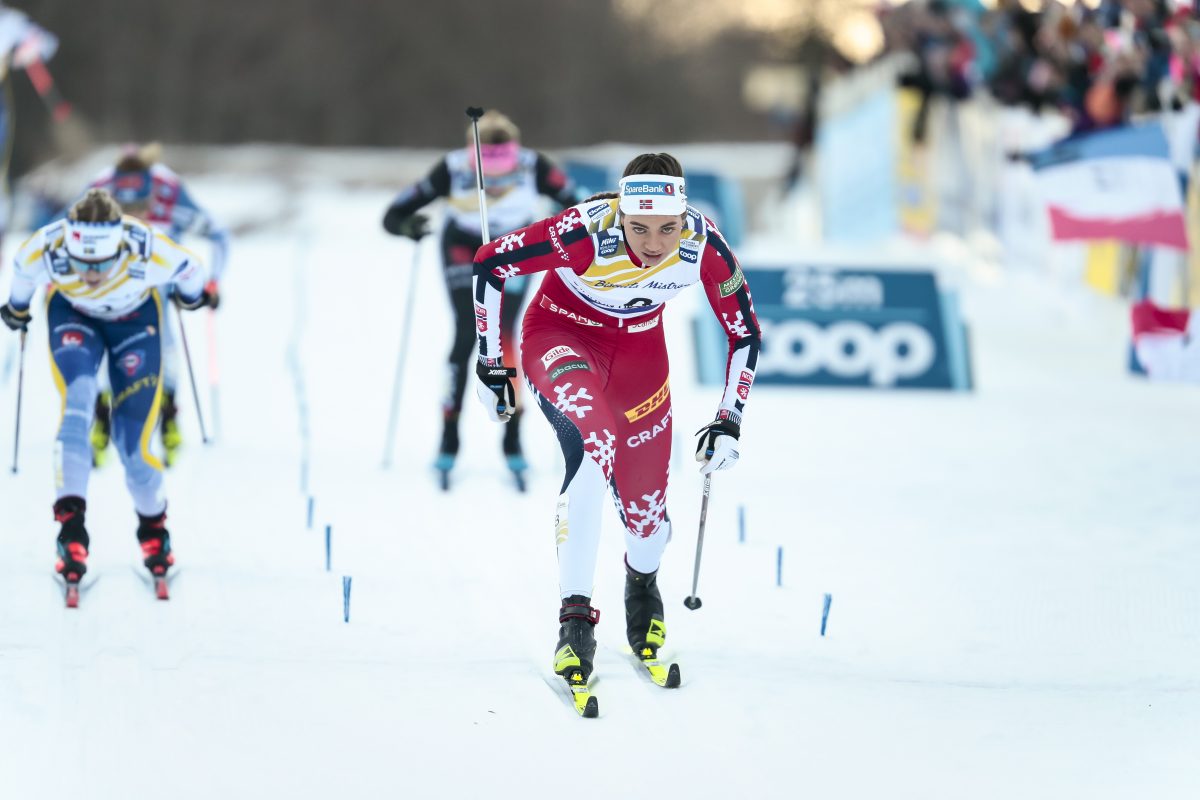Kevin Sweeny is the Swix Director of Racing Services
Glide waxing correctly for cold weather conditions can pay off with huge dividends. Small mistakes can cause the best skis to be slow. Pay attention to these tips when it is cold and your ski day will be much more enjoyable.
– Understand that cold snow has very little water present to provide lubrication. Add to this dirt particles if old / transformed or manmade snow, and sharp aggressive snow crystals if the snow is new. All these factors contribute to reducing glide.
– Proper ski base preparation is essential. Clean skis well using the hot scrape method using Swix BP99 or the new Swix BP88 and brush out well with the new Fine Steel Brush (T0188B). If bases are really dirty, you may have to do this 2 or 3 times. What you have accomplished is this: the pores of the base, like your skin, are now clean of old wax, oils, and dirt. The pores have been opened and are ready to receive the cold wax base layers. If you are a coach or are doing many pairs of skis you may want to consider the new Swix Steel Brush (T01790) for this step. It has become very popular with world cup racing service due to its durability and efficiency.
– Also extremely important at this stage is to evaluate your base structure. The colder and the drier the snow, the less amount of structure you want. In cold conditions we are recommending a .25mm linear rill applied by our hand tool the T401 Super Riller which imprints a fine structure versus cutting a structure into the base. Always brush out extremely well after rilling. If you have too much structure in your base, you have a few options to reduce it. You can use the hot scrape cleaning method mentioned above which will cause the previous structure to rebound a bit and come to the surface; you can lightly scrape the base with a sharp Swix metal scraper (T0080) if you are qualified to do so; or you can have the skis stoneground by a professional and have a very fine structure put in the base. Typically, constant skiing, waxing, brushing will cause the structure to become duller, hence less sharp. Most elite racers have cold, medium and warm skis to choose from.
– Applying the first cold base layer, typically CH4 which is our coldest and hardest glide wax is very important as this will be the base that your race layers will adhere to. Even more importantly, this is the layer that will ultimately resist the sharp snow crystals and dirt particles from pulling the wax out of the base pores. It is very typical for world cup racers to apply 2 or 3 layers of CH4 as a base layer in very cold conditions (iron/scrape/brush each layer) to completely saturate the base. In most cases the bases have a nice polished shine after this has been done. We say the base is now saturated and hard. It is durable and ready to receive the race wax layers.
– Your next step is to evaluate humidity and dirt content of snow. If dirt is present, or you are on manmade snow, our HFBD4 wax should be used. The BD works as a dry lubricant (reduces friction) and repels dirt. Two years ago HFBD4 was the race wax of choice at the SuperTour in Fairbanks, Alaska when temperature of snow was -24C. If snow is very dry and humidity is very low (30-40%), run CH4. If humidity rises to 50-70%, run the LF4 wax. If humidity is high (80-100%), typically with new snow, run the HF4 line. Iron in one or two layers depending on the length of the race and depending if you will be covering this wax with a 100% Flouro topcoat such as Swix FC07 Cera F or Swix FC1 Turbo Solid.
– New this past year is that Swix cold waxes now utilize Nano technology. This has greatly enhanced the performance and range of these waxes. Swix cold waxes CH4, LF4, HF4, HFBD4 are used consistently on the World Cup and should be in your wax box too. The small Nano molecules are absorbed by the base better which ultimately allows the base to repel dirt and water for a longer period of time. We have had outstanding success with durability and glide with the new Nano line. This helps explain why for example the 30km Boulder Mountain Tour was just won on a base of CH4 covered by LF4. New HF4 and HF4BD have been used with outstanding success in clean new snow and dirty transformed snow respectively.
– After you have ironed in each layer (pay very careful and use correct iron temperature which is typically quite high at 155C), you must scrape and brush out the base very well. Any wax left in the fine structure of the base will allow snow crystals and dirt particles to grab onto wax and slow you down. Using a sharp scraper and a Swix Fine Steel Brush (T0188B) are excellent ways to achieve this.
– If you are applying Swix Cera F as mentioned above, the base is now ready for final race wax topcoat application. FC07 and FC1 both run in extremely low temperatures, but you need moderate to high humidity. In cold very dry snow, you would be better off not using the 100% flouro. It is important to explain here that the 100% flouros adhere better to a base of HF (high flouro paraffin waxes). This is because when heat is applied, the 100% flouro bonds with the flouro molecules found in the HF waxes. More HF molecules = better bonding. This gives us a very durable topcoat that repels dirt and is very hydrophobic. This is why, in cases where races are very long, or if snow is very abrasive, you will see wax recommendations suggesting BP99 base cleaning, Swix MB77 base saturation wax, an HF wax for bonding, and then a 100% Flouro such as FC07 or FC1 Turbo Solid for glide.
– Other cold weather tricks of the trade are to ski a kilometer, then re-brush the base first with the Swix Fine Steel (T0188B) then with a Blue Nylon Polishing Brush (T0186B). Melting and ironing the cold paraffin’s is difficult. Some folks like to grate the wax with a cheese grater first, similar to grating parmesan cheese, then sprinkling this on the base, then ironing. Try it! One thing this does is prevent you from having direct contact with your iron to the base of the ski causing base burn which seals your base preventing wax absorption. It is also always better to be conservative in cold conditions and use less structure, use colder wax, and if humidity is very low, do not use high flouro.
Helpful waxing tips, educational downloads and discussions can be found at www.swixsport.com. Go to the Swix School of Waxing and also utilize the Wax Wizard. These tools are straight from our scientists and world cup race service.




